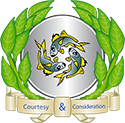Safeguarding Children Online
Online Safety is about using technology safely, especially technology that can access the internet or be used to communicate with others. Stranton Primary school recognises that internet, mobile and digital technologies provide positive opportunities for children and young people to learn, socialise and play but they also need to understand the challenges and risks. Technology is becoming an integral part of children’s lives; it entertains them, engages them and motivates them. As a result, the use of technology has become a significant component of many safeguarding issues. In many cases such as child sexual exploitation; radicalisation; bullying: technology often provides the platform that facilitates harm.
An effective approach to online safety empowers our school to protect and educate the whole school community in their use of technology and establishes mechanisms to identify, intervene in, and escalate any incident where appropriate. As society increasingly works online, it is essential that children are safeguarded from potentially harmful and inappropriate online material. At Stranton School, we are committed to teaching children how to use technology safely and confidently, by minimising risks through their responsible choices and appropriate behaviour. Children are regularly encouraged to speak to a trusted adult to ask for help with decisions or if they are worried about any content they encounter online. We ensure appropriate filters and appropriate monitoring systems are in place to safeguard all of our stakeholders.
The rules for online safety apply to any technology or device that can be used for communication and/or has access to the internet. This includes:
- Computers and laptops
- Tablets
- Mobile phones
- Smart watches
- Games Consoles
Through our online safety curriculum and procedures in school, we endeavour to:
- Audit the training needs of all staff and provide professional development to improve their knowledge of and expertise in the safe and appropriate use of new technologies.
- Work closely with all families to help them ensure that their children use new technologies safely and responsibly both at home and at school.
- Manage the transition from locked down systems to more managed systems to help pupils understand how to manage risk; to provide them with richer learning experiences; and to bridge the gap between systems at school and the more open systems outside school.
- Provide an age-related, comprehensive curriculum for online safety that enables pupils to become safe and responsible users of new technologies.
- Ensure that children accessing face-to-face teaching and remote education are equally safe online.
- Systematically review and develop online safety procedures, including training, to ensure that they have a positive impact on pupils’ knowledge and understanding.
The breadth of issues classified within online safety is considerable, but can be categorised into three areas of risk:
- content: being exposed to illegal, inappropriate or harmful material; for example, pornography, fake news, racist or radical and extremist views;
- contact: being subjected to harmful online interaction with other users; for example, commercial advertising as well as adults posing as children or young adults; and
- conduct: personal online behaviour that increases the likelihood of, or causes, harm; for example, making, sending and receiving explicit images, or online bullying.
These three issues are taught within our school online safety curriculum; however, this is flexible to adapt to any topical issues at present within current society and the needs of our school community.
Teaching Online Safety in School
As part of our Computing and PSHE/RSE curriculum, children are taught online safety in a dedicated unit. This knowledge is recapped regularly within relevant tasks, such as online research. Pupils are reminded of the SMART rules for staying safe online from www.childnet.com.

Resources that can support the effective delivery of online safety include:
Thinkuknow is National Crime Agency/CEOPs education programme with age specific resources
Childnet International provides age appropriate resources and stories to introduce online safety.
EYFS and KS1
Smartie the Penguin - Childnet
Digiduck’s Big Decision - Childnet
KS2
The Adventures of Kara, Winston and the Smart crew - Childnet
SMART Video Lessons - Childnet
Safer Internet Centre has a wide range of films, storybooks and other fun sites, with plenty of information to help you enjoy your time online and stay safe on the internet.
Resources for 3-11s | Safer Internet Centre
Supporting Parents with Online Safety
We are also committed to ensuring that all those who work with children and young people, including their parents/carers, are informed about the ever-changing risks so that they can take an active part in supporting children and young people to navigate the online world safely and confidently. We regularly update parents/carers with advice and guidance on how to keep children safe online using the school website, newsletters and the school Facebook page.
Reporting a Concern
If you are concerned regarding a child experiencing online bullying or another online issue has worried you please speak to a member of school staff, or you can you can report this concern directly to CEOP (Child Exploitation and Online Protection) https://www.ceop.police.uk/safety-centre/. Alternatively, you can telephone Childline at any time on 0800 1111 or visit them at www.childline.org.uk.

